How An Elite Marathon Runner Took Charge Of His Genetics
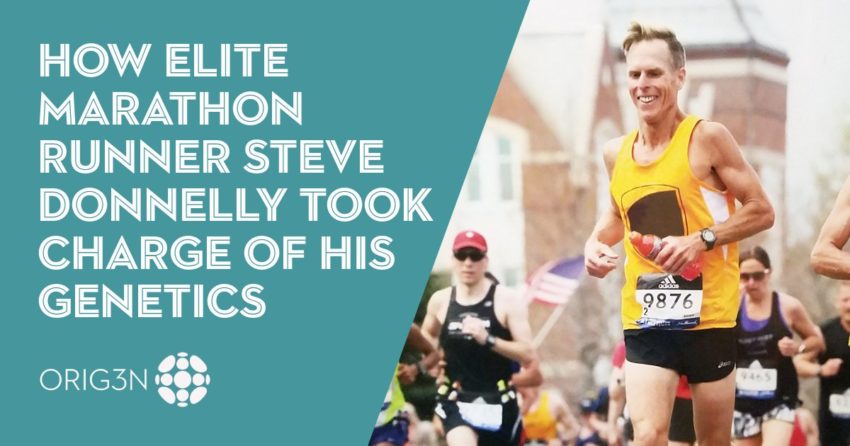
Steve D. is a trained Marathon runner. He has overcome a genetic pre-disposition to Diabetes and is using his DNA Test results to train harder and smarter for all future marathons. This is his #Orig3nStory.
Can you tell us a bit about your background and why you became interested in DNA Testing?
Sure. I carry the TCF7L2 (TT) gene. This gene explains why every male on my father’s side since my great-grandfather has had diabetes. Since I know I carry this gene, health and fitness have been extremely important to me. Currently, I do not have diabetes and I believe it’s because of my commitment to health and wellness and to learning more about myself to make the best decisions I can for my lifestyle.
You’re just joining us after two amazing achievements. Congratulations on turning 50 and on running your fastest time ever at the Chicago Marathon 2018!
Thank you and I’m feeling great about both. I’ve discovered that most of my genetics are engineered for power and speed which explains why distance running still feels hard for me even after 18 marathons. I never thought I could run a 3:03:08 Marathon (at the age of 50 too!) in a World Marathon Major, but I truly feel that the insights your Orig3n DNA tests provided me with played a huge role in that!
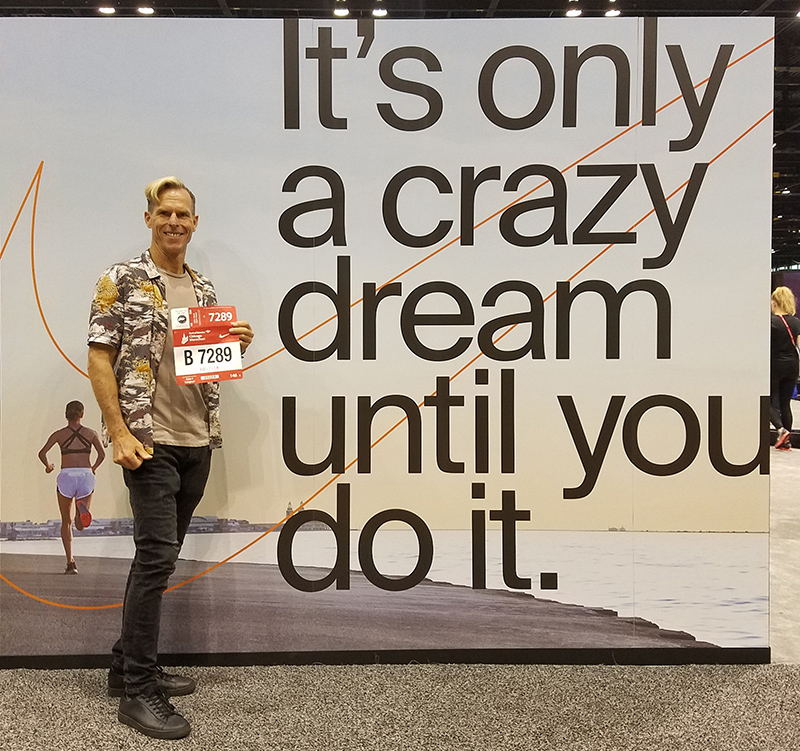
That’s fantastic. Would you mind sharing some of your results and how you adjusted or improved your training.
Despite a few of my assumptions, I was actually surprised by my Orig3n DNA Test results! I found out that I’m gifted in ACTN3,AC, and VDR all in the power/speed category. The pursuit of distance running sometimes felt like a struggle, even after 18 marathons in less than 6 years and including 4 Boston Marathons. With the genetic disadvantage in endurance and needing to adapt in my training response, I now understand why it’s been so challenging.
After confirming that I’m more built for speed and power than endurance, I incorporated increased distance and higher intensity into my training to take advantage of my genetics and help improve that endurance at a high cardio output.
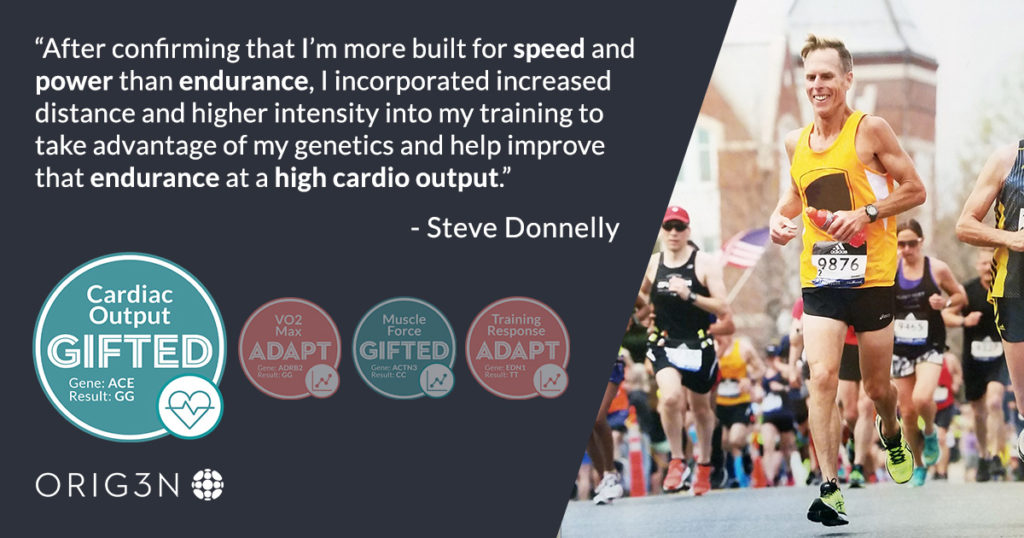
That’s certainly a lot to overcome but you seem to have such a positive attitude Steve. What keeps you motivated and were there any other results that you struggled with?
When I found out I was adapt in EDN1 I was disappointed because it felt like I was going to see slow progress no matter what I did. Then I read that at elevation Endothelin levels (the protein I’m lacking) increases in the body. I made a few brief trips to train in elevation and all of a sudden I received a huge training response!
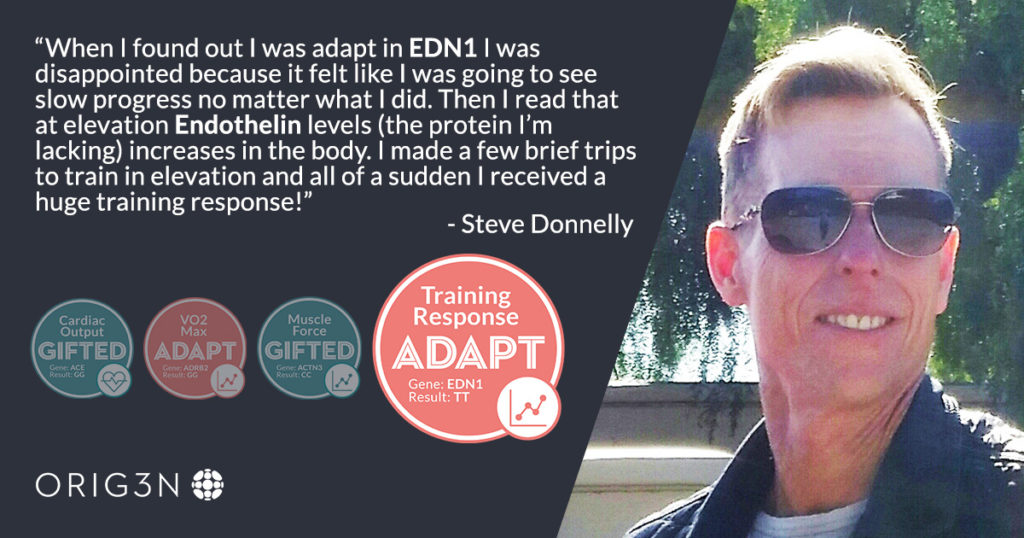
I think what also gets me going is that I have a lot of energy and can focus that energy on the things that I’m focused on. People think I’m OCD, but I believe it’s more that I’m self-driven and motivated. Maybe they also think that I’m being too competitive but I just can’t help being passionate in life.
One of my favorite quotes I heard recently is “Limits begin where vision ends.” That’s what I usually try to do, envision the things that don’t seem possible and then try to chase my dream because the human body is capable of great things. I feel that I live my life constantly reaching beyond my grasp.
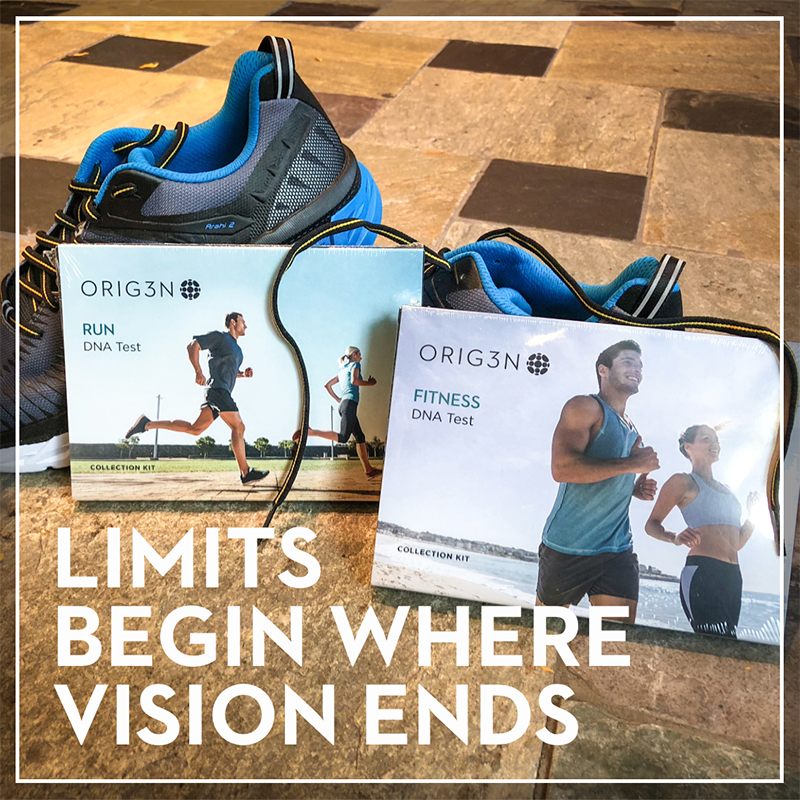
It’s fascinating that you truly seem to be built for power but have chosen to challenge yourself. What did you do to compensate for the other genes that didn’t contribute to your goals in distance running.
I believe that the more you understand your own physiology, the smarter you can train. For my DNA Test result of GG for ADRB2 showed that I was adapt in VO2 Max. To overcome this, I did short speed intervals of 100m and 800m which helped improve my oxygen uptake.
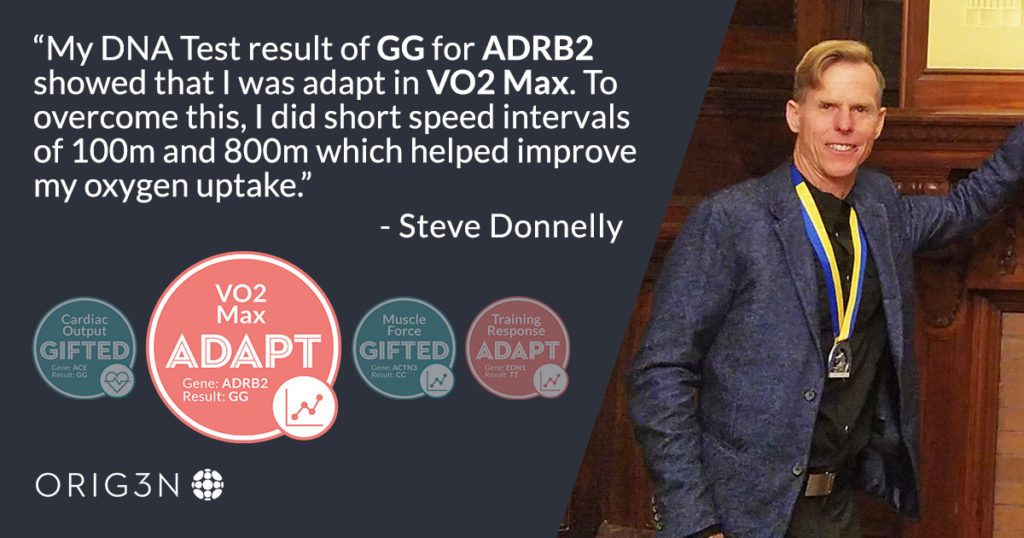
With this increase in my sprint training I’ve seen fast results, including personal bests in less than two months for both a mile (5:16), and 400m (1:12).
On top of that I also learned that fast twitch fibers aren’t useful in distance running and will fatigue easy. To compensate for this I incorporated some speed work (faster than Marathon pace) into my long runs. Even though it’s unconfirmed if I can change my muscle type, I decided to try to increase the size of my muscles with training.
I am excited about these results since I am now 50 years old and still improving! I think this proves my point about what the human body is capable of. Also, having the double diabetes gene (sugar sensitivity) and not being diabetic is another thing that I feel great about.
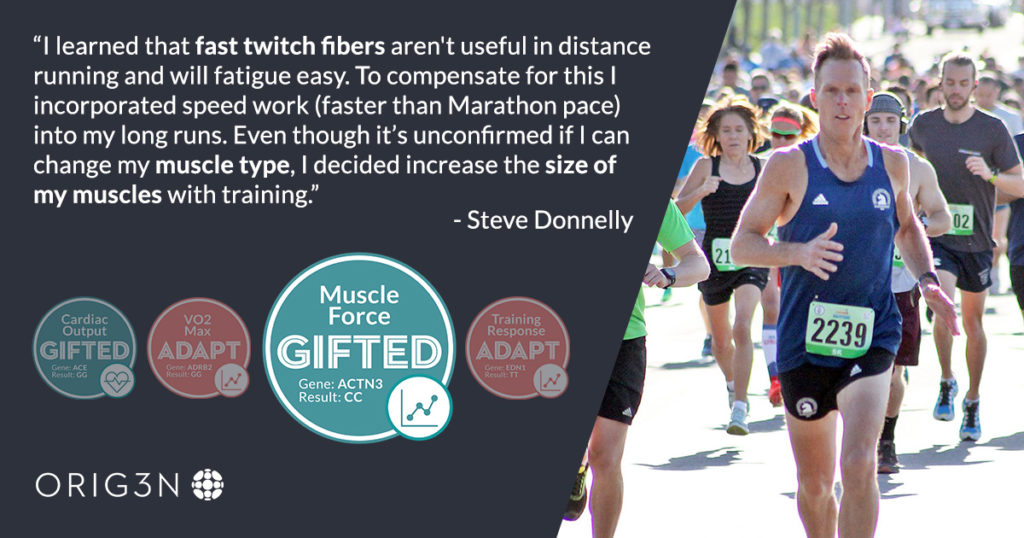
What does the future hold and what advice would you give if you could talk to your younger self?
I’ve applied these insights to my training and I am seeing exciting progress. One other exciting thing is that I’ve been easily learning the basics of a few foreign languages. I guess that finding out that I’m gifted in the language learning gene has helped.
My main focus is training to run in Wave 1 of the Boston Marathon in 2019. I am excited to see how the changes I’ve made based on my results will affect my ability in all future marathons!
I think the advice I would give my younger self is just some whispers on what my genetics strengths might be and to pursue them, but I wouldn’t want to reveal too much because it’s our mistakes and successes that we make in life that mold us into who we are today.
Thanks for joining us today Steve. Are there any parting thoughts you would like to share?
One thing I learned from this experience is that your genetics don’t have to define your destiny. Even though I carry a gene that correlates to diabetes, I’ve been able to overcome that through health and fitness.
I definitely feel that the information that your company provides can be of great benefit in helping to achieve your goals and working on areas that you may have a genetic disadvantage in.
I’m always referring people to Orig3n now and thanks again for everything you’ve helped me achieve! I hope it will help others in a similar situation.